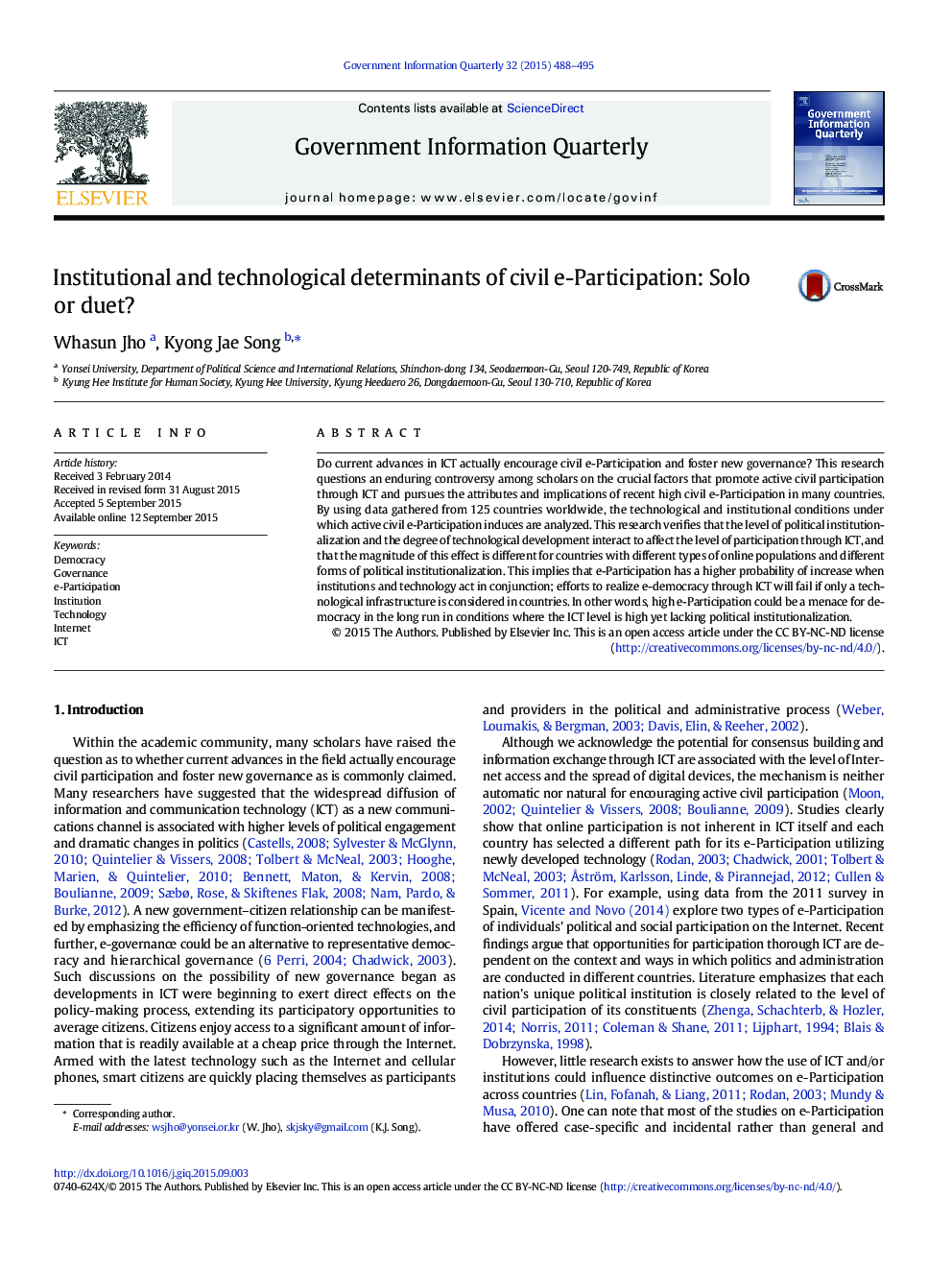| Article ID | Journal | Published Year | Pages | File Type |
|---|---|---|---|---|
| 10495626 | Government Information Quarterly | 2015 | 8 Pages |
Abstract
Do current advances in ICT actually encourage civil e-Participation and foster new governance? This research questions an enduring controversy among scholars on the crucial factors that promote active civil participation through ICT and pursues the attributes and implications of recent high civil e-Participation in many countries. By using data gathered from 125 countries worldwide, the technological and institutional conditions under which active civil e-Participation induces are analyzed. This research verifies that the level of political institutionalization and the degree of technological development interact to affect the level of participation through ICT, and that the magnitude of this effect is different for countries with different types of online populations and different forms of political institutionalization. This implies that e-Participation has a higher probability of increase when institutions and technology act in conjunction; efforts to realize e-democracy through ICT will fail if only a technological infrastructure is considered in countries. In other words, high e-Participation could be a menace for democracy in the long run in conditions where the ICT level is high yet lacking political institutionalization.
Related Topics
Social Sciences and Humanities
Business, Management and Accounting
Business, Management and Accounting (General)
Authors
Whasun Jho, Kyong Jae Song,
